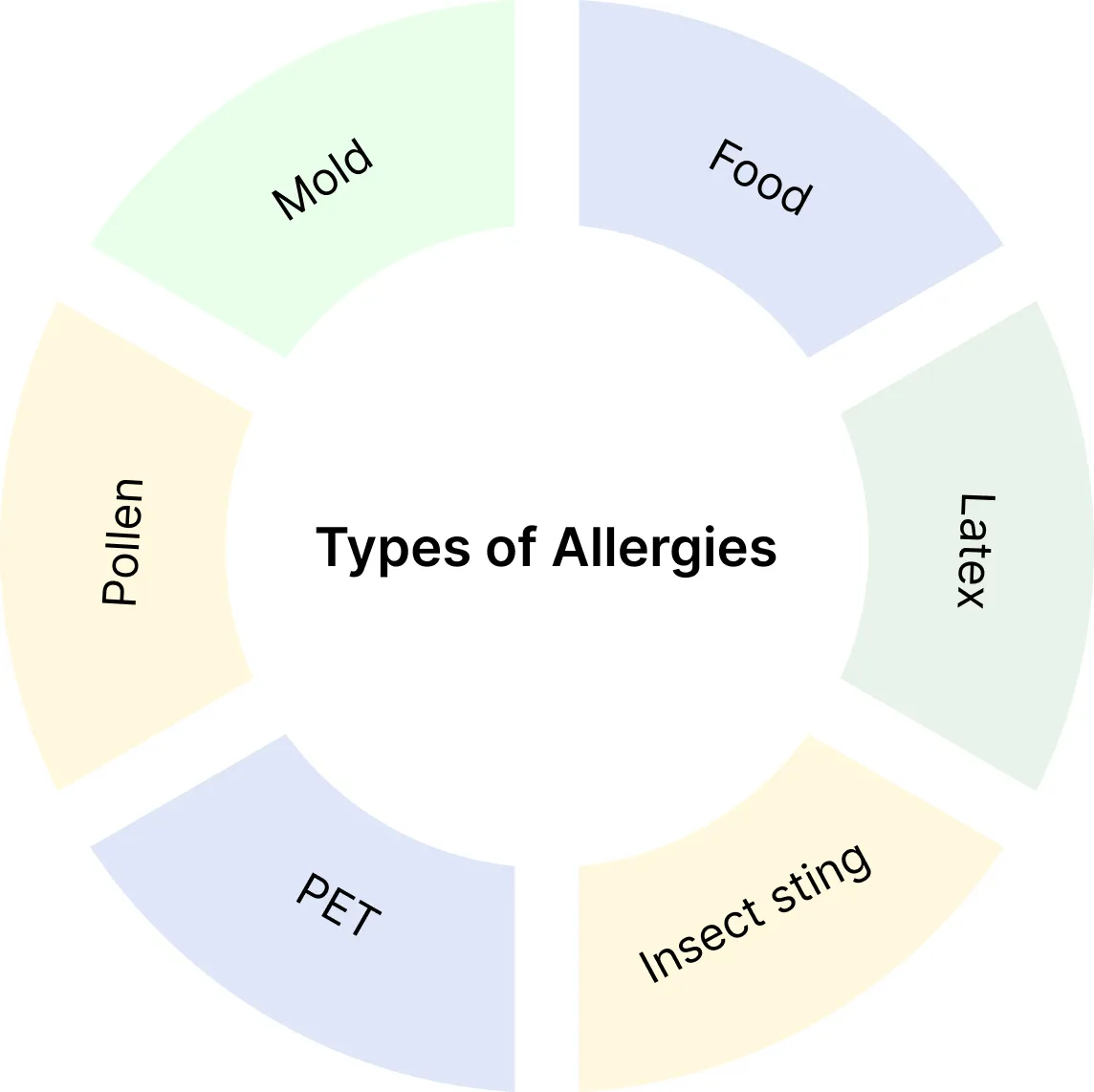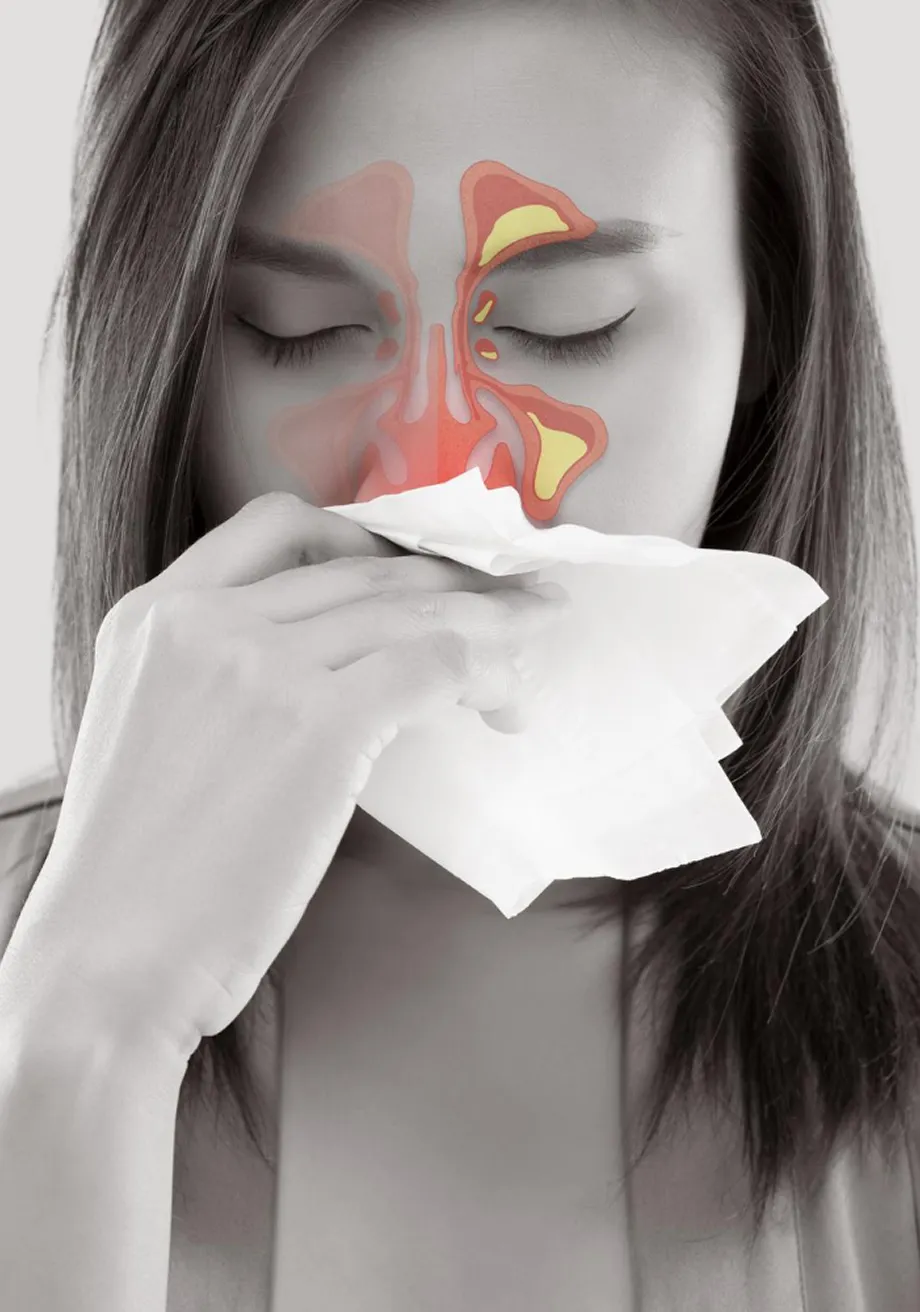What Are Allergies and What Treatments Are Available?
Where do my allergies come from?
Have you suffered from painful allergy symptoms for years but have never really known where they come from or what causes them? The source of your allergies is your genetic makeup.
Your genetics tell your immune system how to produce antibodies so that it can defend itself. However, sometimes the body confuses harmless substances for harmful ones resulting in the body attacking these harmless substances. The substance that triggers your body’s reaction is called the allergen and the reaction itself is your allergies.
When the allergen enters your body your immune system will produce antibodies to defend itself. This causes things like swelling, irritation, and increased blood flow.

Are there common allergy triggers?
Some common allergy triggers include:
Skin rashes can often occur when people come in contact with latex, plants, soap, cosmetics, jewelry, and other things.
Along with these symptoms, there are also other allergy symptoms that are all placed under the category of “Rhinitis.” The two types of rhinitis are allergic and non-allergic. Symptoms of rhinitis include:
What is allergic rhinitis?
Allergic rhinitis is a type of allergy that affects the sinuses. It occurs because, sometimes, the body overreacts to non-infectious particles like pollen, mold, dust mites, animal hair, chemicals, tobacco smoke, some foods, some medications, and insect venom. Different substances that cause allergic rhinitis are more widespread during certain seasons and periods of the year:
- The height of tree pollen production normally occurs between late March and early April.
- Hay Fever allergies are more common during the spring and late summer.
- Falling leaves during October and November lead to more allergic reactions from mold spores.
Can allergic rhinitis last all year?
Yes, rhinitis can occur any time of the year. This is called Perennial Allergic Rhinitis, and the most common forms of it are caused by sensitivities relating to pet hair, carpeting, upholstery, mold, and houseplants.


Your allergy-like symptoms may not be related to allergies.
Non-allergic rhinitis is a form of rhinitis that is caused by irritants, not by an allergic reaction. Irritants that may cause this are cigarette smoke, pollutants, odors, alcohol, and cold temperatures. Blockages such as deviated septum, infections, and the overuse of medication may also cause symptoms.
If you have been dealing with chronic rhinitis find out about more treatments here.
How are allergies treated and diagnosed?
The best way for your ENT to test your allergies is by getting a family and medical history from you, as well as, performing either a blood or skin prick test.
Your history should include:
Along with this medical history, a physical examination may help to determine what allergens your ENT should test first.
The most common form of allergy testing is the skin test
The skin prick test is the most common form of allergy testing available. Several different allergens will be pricked into your skin at once, and the resulting reactions will allow your doctor to determine the severity and type of allergies you have.
What’s the best treatment for allergies?
All allergies are different which means that a treatment plan has to be unique to you.
At Sleep and Sinus Centers of Georgia, we can work with you to determine the best possible treatment plan for your allergies. Methods of treatment that may be in your plan include:
Avoiding triggers is a good way to avoid allergic reactions. Ways to avoid triggers include:
- Stay indoors during peak pollen time
- Remove carpeting that traps dust mites and mold
- Eliminate leaks and use dehumidifiers to help slow or stop the spread of mold
- Wear a mask during an unavoidable exposure
Using medication to control your allergy symptoms may be effective, but it will not get to the root of the problem. Medications that may be in your treatment plan include:
- Antihistamines
- Decongestants
- Mucous reducers
- Nasal rinses
Immunotherapy is the best way to get long lasting relief from your allergies. The two types of immunotherapy include:
- Traditional injection therapy (allergy shots)
- Sublingual immunotherapy (under the tongue allergy drops)
The most convenient form of allergy treatment
Our ENT professionals are experts at treating allergies and allergy symptoms.
They will work with you to diagnose and treat your painful allergies in a way that is unique to you.








